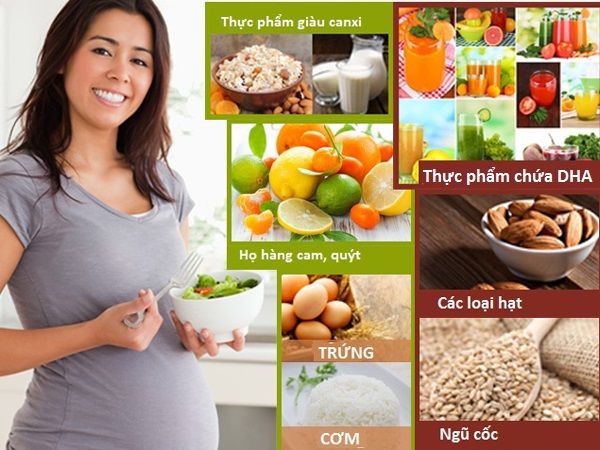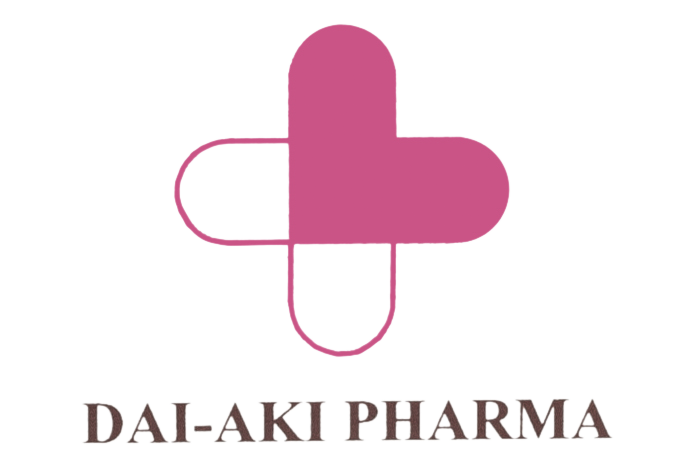
Nutrition for pregnant women
23:10 - 15/04/2021
Taking care of the health of pregnant women is especially important for both mother and unborn baby. Proper and adequate nutrition, exercise, and rest will help the fetus develop optimally, and the mother will be healthy enough to give birth, nurture and care for her child.
NUTRITION FOR PREGNANCY IN 9 MONTHS OF GESTATIONAL PREGNANCY
Nutrition in pregnancy - What supplements are reasonable?
Many scientific studies show that the mother's health and nutrition status has a direct influence on her child from the time she is a fetus to an adult. Although there have been many activities and programs to support the health of the people in general and women of childbearing age, pregnant women have brought many results, but the lack of energy and micronutrients is still common, variable and this is the main cause of low birth weight.
Risk factors for low birth weight babies are: - Poor nutritional status of the mother before and during pregnancy |
|
1. NUTRITION DURING PREGNANCY When the child is still in the womb, the child's nutrition depends on the mother's nutrition. Nutrients from the mother will follow the blood through the placenta to supply to the baby. Adequate nutrition will help mothers have good resistance to disease, be strong enough to give birth, recover quickly after giving birth, and have enough milk to breastfeed. Mothers are well-nourished before and during pregnancy to prevent fetal malnutrition, fetal distress, mental and motor retardation. 1.2. Energy demand and key nutrients Energy demand The average energy requirement in women is 2,200 kcal/day. Pregnant women in the second trimester need to increase their energy needs by 360 kcal/day, in the third trimester need an extra 475 kcal/day. Provide enough energy needs during pregnancy to ensure weight gain for the mother The rate of weight gain should be maintained at 0.4kg/week during the second and third trimesters for women of normal pre-pregnancy weight gain 0.5kg/week for underweight and 0.3 kg/week for overweight women. Protein: Protein is needed to build the fetus, placenta, mother's body tissues. Should eat foods rich in protein such as meat, fish, eggs, milk, beans. Fat: Fat is necessary for building cell membranes and the nervous system of the fetus, providing energy and helping the mother absorb fat-soluble vitamins. Pregnant women need lipids at higher than normal levels Use both saturated and unsaturated fatty acids. Saturated fatty acids (found in animal fat, coconut oil, palm oil) but should not exceed 10% of dietary energy. Increase the use of vegetable oils (soybean oil, peanut oil, sesame oil, fish fat) to provide more unsaturated fatty acids. 1.3. Need for vitamins and minerals The need for many vitamins and minerals increases during pregnancy. Calcium - Calcium is needed for the fetus to build bones and create teeth. Daily calcium requirements in pregnant women need to increase by 300mg/day to reach 1000mg/day Folic Acid - Folic acid is necessary for the normal growth of the body. When folic acid deficiency in pregnant women easily causes macrocytic anemia and neural tube defects in the fetus. Vitamin A - The mother's body needs a sufficient amount of vitamin A to provide for the baby and increase the mother's resistance. The need for vitamin A of pregnant women is higher than normal, 800 µg/day. However, if pregnant women consume too much vitamin A, it can cause birth defects. Vitamin D - Vitamin D is necessary for the absorption of calcium and phosphorus, contributing to bone structure. Vitamin D deficiency will lead to osteomalacia, hypocalcemia convulsions, osteoporosis. Vitamin B1 - The need for vitamin B1 in pregnant women should be sufficient to prevent edema. Iron - Iron is essential for both mother and child. Iodine - Iodine plays a very important role for pregnant women. The most serious consequence of iodine deficiency is affecting the development of the fetus. Iodine-deficient pregnant women are at risk of miscarriage, stillbirth, premature birth, and birth defects due to brain damage, low birth weight, and birth defects. birth such as paralysis of limbs, slurred speech, deafness, muteness, and strabismus. Iodine deficiency leads to increased perinatal mortality. - Iodine deficiency leads to increased perinatal mortality - Avoid working at height and immersing in water. Take breaks during work time. The last month of pregnancy needs to rest so that the mother has strength and the baby gains weight. Should exercise gently by doing housework, should not rest passively - Make sure to sleep at least 8 hours a day, nap for 30 minutes to 1 hour - Keep a comfortable mental life, avoid stress, worry anxiety. Limit travel. - Keep a clean, airy living environment, avoid tobacco smoke and dust - Examine the breast and note abnormal nipples such as short nipples, pacifier to guide mothers on how to care to facilitate breastfeeding. - Complete 2 doses of tetanus vaccination. SOME HEALTH PROBLEMS RELATED TO FREQUENT NUTRITION AND HOW TO TREAT - Iron deficiency anemia: Usually occurs between 3 months, especially the last 3 months of pregnancy. Nutritional anemia prevention program: Take an iron supplement with 60mg elemental iron and 400 µg folic acid. Take 1 tablet per day continuously from the time you find out you are pregnant until 1 month after giving birth. Drink between meals, do not drink with milk, tea, coffee. - Indigestion: Due to the pressure of the uterus on the digestive system. Eat small meals, do not eat before going to bed. Eat slowly, sit up straight when eating. - Constipation occurs in 30-40% of pregnant women. Drink plenty of water (8 glasses/day), eat foods high in fiber. - vomiting: Usually occurs in 6-16 weeks. Smelly foods should be avoided . Eat foods high in carbohydrates and low in fat. Wake up early in the morning, drink a glass of hot water with bread and cookies. |
Dr.Đỗ Thị Ngọc Diệp – Director of HCMC Center of Nutrition




